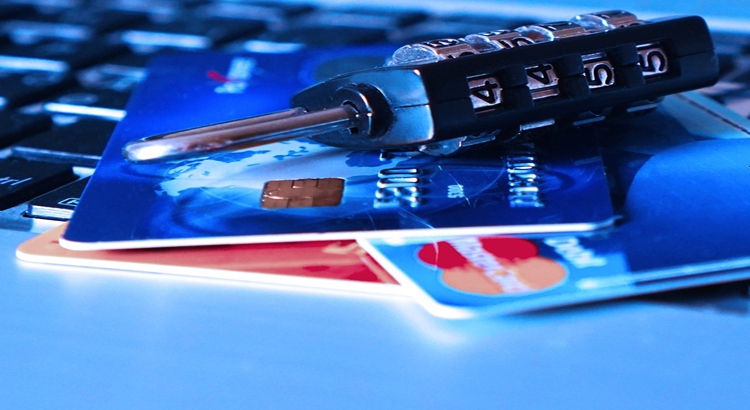Quick question–I am in the process of trying to establish credit and trying to do so quickly. I guess I am trying to learn more about credit and different paths to establishing it in a manageable way–wondering if you could point me to any resources or would have any advice in that direction. I did a quick search of your blog, but didn’t seem to pull up anything directly related, though the 15 money mistakes was useful.When you have the time, I’d appreciate it,
6 Steps to Establishing Excellent Credit (and Maintaining it)
1 Debt to Credit Ratio
Simply stated, how much of your total credit limit are you using? If you have one credit card with a $2,000 limit (which is not unusual for a first credit card) and you use $500 of it each month, your debt-to-credit ratio is .25% (500÷2000). The lower your percentage the better and under 10% is optimal for excellent credit.
2. Payment History
This is where organization and consistency are crucial. Missing a payment because you forgot to pay it may affect your credit for years. Call your credit card company immediately and try to have the fee reversed. If you automate payments you’ll never accidentally miss one.
If you can’t afford what you’re charging, that’s a different story. Overcharging credit cards has been said to be psychologically easier than overspending cash. This is because with a credit card you’re not forced to take stock of your spending until it’s too late. For me, the answer has been to start keeping a budget and referring to it consistently. By starting a budget and tracking your charges you will be forced to acknowledge your spending and hopefully, adjust it accordingly.
3. Age of Credit
The average age of your credit, along with your consistent payments, proves to lenders that you’re trustworthy over time. If you’re a credit beginner, you don’t have a long track record and you will have to prove yourself over years.
To optimize your age of credit, refrain from closing credit cards or opening too many new lines at one time. Both of these actions will lower your average age of credit.
4. Credit Inquiries
Credit inquiries occur when a lender requests your credit history. Too many of these requests can signal to the credit bureaus that you’re trying to rapidly secure multiple loans. This will briefly lower your credit rating.
Of course credit inquiries are normal, just try to limit their frequency-especially when you need your rating to be as high as possible. It’s also worth noting inquiries don’t hurt your score as harshly or for as long as missed payments or derogatory marks.
5. Derogatory Marks
If you have debts turned over to collection agencies, liens on your property and other collection actions on the public record your credit score could take a huge hit. One of these reports, like an unpaid library book from 5 years ago, is unlikely to hurt your credit score for long but don’t rack up multiple debts.
6. Number (and Variety) of Accounts
The more loans or credit cards you have and pay timely, the better you will score in this area. That doesn’t mean that you should apply for a bunch of credit cards; having a variety of credit cards and loans is the key here.
The best way to ensure that you’re establishing excellent credit over time is to use credit cards for everything and pay your bill in full at the end of each month. This way, not only will you earn valuable loyalty rewards, you won’t have to worry about snowballing debt.


It does suck that there really isn’t a “quick fix” to get a better credit score. For us,eliminating debt was crucial in improving our credit scores before buying a home. We eliminated $14,000 in credit card debt and got rid of a $10,000 car loan. Our scores improved as a result, which meant we got a better interest rate on our house.
Thanks for the comment,
That’s a great point. I’d like to do another article on this and specifically cover some of the best ways to eliminate debt as well.
Excellent article!
Thank you!!
Devil’s advocate commentary and big picture view rolled into one:
One of the many ways the 2008 crash could have been avoided or at least mitigated, is if the banks and brokerages has to play by the same rules. Junk debt was consistently and for several years overvalued and deliberately so, thus removing a very important check on the system. A lot of people have bad credit as a result and they have to scurry around rats to get back in good standing with the very people who derailed the system.
I know your blog is practically-oriented but I felt this comment was warranted.
Thanks for the comment,
Yeah there is definitely a level of hypocrisy there! Though, in many ways if people were more sophisticated about the deals they enter, we could have avoided some of the fallout from the housing crisis. I know it’s hard to plan for when the economy tanks and people start losing their jobs though. This is one of the reasons I feel that real estate is particularly risky if you don’t have a high level of job security and don’t take the time to understand the terms of the purchasing agreement inside-out.
This was very useful and interesting! Thank you!
Thanks so much for reading!
A great credit score is an accumulation of years of hard work and a safe and un-stolen social sec number.